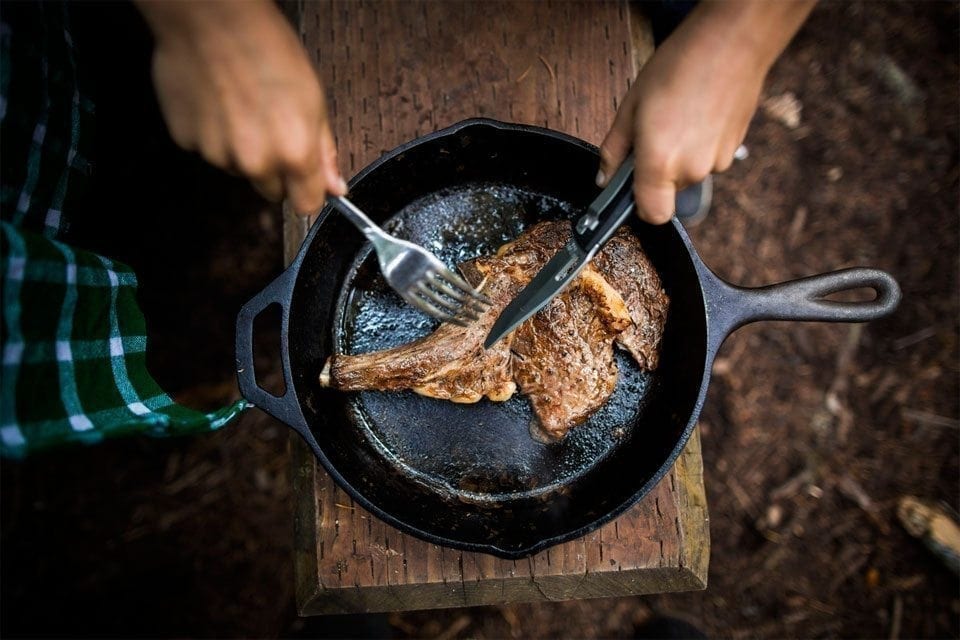 It turns out there’s a very good reason you see weight-room regulars leaving the gym with a protein shake in hand. It’s not just about image, but rather building muscle and optimal recovery. Indeed, long after the pumping of iron ceases, your dietary decisions make a difference when it comes to the effectiveness of your strength-training regimen.
It turns out there’s a very good reason you see weight-room regulars leaving the gym with a protein shake in hand. It’s not just about image, but rather building muscle and optimal recovery. Indeed, long after the pumping of iron ceases, your dietary decisions make a difference when it comes to the effectiveness of your strength-training regimen.
While an all-around healthy diet is important, those who are especially interested in increasing muscle mass should focus on protein intake. That’s because the muscles are made up of two types of proteins (actin and myosin), which are composed of linked amino acids. When you take in protein during meals, the body breaks it down into amino acids. This, in turn, assists in building muscle. What’s more, it also plays a role in repairing the muscles following the natural breakdown that happens during resistance training.
In addition to the underlying science, research has demonstrated increases in both strength and power in athletes who consume protein supplements over those who do not. Many of those increases involve as little as 10 weeks of supplementation, suggesting that it doesn’t take long to see the effects of taking in that extra protein.
If building muscle is on the top of your fitness goals, be sure to pay attention to not just what you do in the gym but also what you’re eating throughout the day. Keep reading to find out how much protein you need, which types are best and when to consume it.
How Much Protein Do I Need?
While the USDA recommends the average person take in 0.8 grams of protein per kilogram of body weight (0.36 grams per pound), those numbers should be adjusted if you’re an athlete. In particular, if you’re utilizing strength training to build muscle, you need to increase those amounts. To be sure, the International Society of Sports Nutrition states: “Vast research supports the contention that individuals engaged in regular exercise training require more protein than sedentary individuals.”
In terms of actual numbers, they suggest 1.4–2.0 g/kg of body weight/day for physically active individuals. Similarly, the American College of Sports Medicine recommends 1.6–1.7 g/kg of body weight/day, comprising 15–20% of your total calories for the day.
What Sources of Protein Are Best?
There are a variety of ways you can get the protein you need to support muscle growth. The most obvious is through your regular meals. Lean beef, chicken, salmon, milk, eggs, nuts, beans and lentils are just a few examples of high-protein foods that can be worked into nearly any meal.
Getting some of your protein via supplements, shakes and drinks is another viable way to help you consume the recommended amount of daily protein. In fact, the ISSN states: “While it is possible for physically active individuals to obtain their daily protein requirements through a varied, regular diet, supplemental protein in various forms are a practical way of ensuring adequate and quality protein intake for athletes.”
While there are plenty of options out there, recent research suggests that 20 grams of whey protein after a workout does a great job of repairing and rebuilding those ailing muscles.
When Should I Consume Protein?
In addition to helping guide the type and amount of protein intake you should be shooting for, the International Journal of Sports Nutrition also emphasizes the significance of timing: “Appropriately timed protein intake is an important component of an overall exercise training program, essential for proper recovery, immune function, and the growth and maintenance of lean body mass.”
On top of consuming protein with regular meals throughout the day, the American Council on Exercise emphasizes the importance of eating a snack within 30 minutes of finishing a workout. Ideally, it would include both protein and carbohydrates together, as studies have demonstrated they have a positive impact on subsequent performances when combined.
ACE recommends consuming the following after a workout:
- Carbohydrates: 1–1.5 g/kg of body weight
- Protein: approximately 1/3 of the number of grams you ingested in carbohydrates
Keep in mind that a number of factors can influence how much protein you need, the type of protein that is best for your body and the timing of protein intake. Everything from workout duration and fitness level to health history and food allergies will guide how and when you consume that much-needed protein. If you’re unsure of where to start, consider sitting down with a sports nutritionist or wellness coach to help determine what will work best for your particular situation.
Sponsored by Optimum Nutrition.




